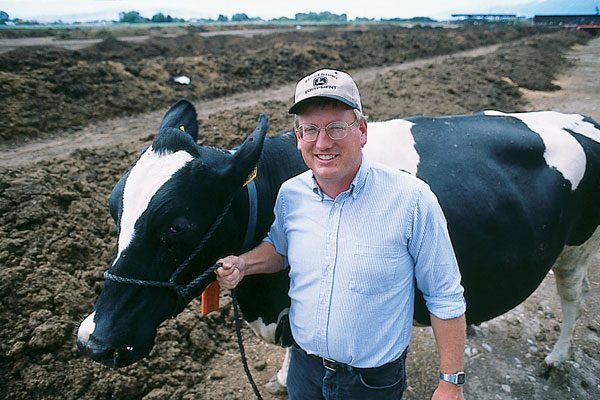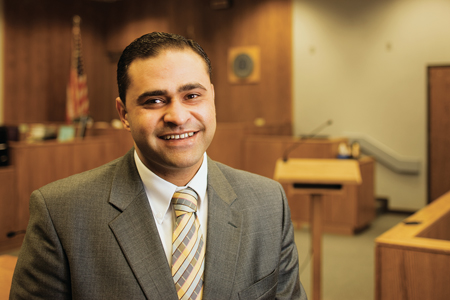By Andrea M. Reese, ‘01
WHEN Mark H. Hansen, ’90, first heard the idea, he hesitated. He thought, We’re talking about selling cow dung here. But his perspective changed dramatically during winter semester 2001. Karl B. Ritchie, manager of the BYU Dairy, proposed that Hansen, an assistant professor of organizational leadership and strategy in the Marriott School of Management, let his strategic management class tackle the problem of selling the dairy’s—yes-—excess cow manure.
As a by-product of its impressive milk production, the dairy herd also yields 18,000 tons of manure per year. In 1998 BYU invested in equipment that turned the manure into seed-free, odorless compost, but meager local sales barely put a dent in the ever-growing stockpile. Ritchie says, “I can’t tell you how frustrated I was back in January. I’m not comfortable marketing and I didn’t have the time to do it.”
That’s when 11 seniors from Hansen’s capstone course stepped in. They began this alternative term project by asking focus groups of local gardeners how they selected compost. The results were enlightening. Previously, Ritchie had focused on the material’s agronomic value, but students found that consumers were more concerned that it be odor-free, weed-free, dark-colored, and free of clumps and foreign material.
Through persistent research in the community, the students simultaneously publicized the product and crafted a management strategy. Their strategy helped turn the dairy’s surplus compost into a cash cow. Ritchie conservatively projects that by the end of the year, total sales will surpass $23,000–about 10 times last year’s revenues.
Profits will fund research projects done by teacher-student teams in the College of Biology and Agriculture. These mentorships help students earn income and gain valuable experience. The students have also published with their faculty mentors an impressive array of scientific research—more than 40 articles and presentations. But the dairy’s success doesn’t just benefit BioAg students. Business student Lexie A. Thacker, ’01, says, “I learned a lot about the synergy that comes from group work and learned a lot about perspective. At first, manure seems kind of gross, but the more you learn about the process, the more you see it as useful, clean, and affordable.”
info: Those interested in purchasing compost can contact the dairy at 801-423-2200. Delivery is available within Utah County for an added fee. (Dairy compost is more readily available in the fall, which is the best time for applying it. Ritchie says this gives it time to incorporate into the soil before spring planting.)










